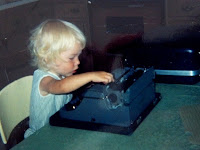To celebrate the release of You Can Write for Children: A Guide to Writing Great Stories, Articles, and Books for Kids and Teenagers, I’m sharing a excerpt from one
chapter on “Developing an Idea.” (And while my examples are from children's literature, the information is accurate when writing fiction for adults as well.) Week one
started the topic of Developing an Idea, week two
introduced the parts of the story or article, and week
three covered expanding the middle. Here’s part four:
Happy Endings
The climax ends with the resolution. You could say that the resolution finishes the climax,
but it comes from the situation: it’s how the main character finally meets that
original challenge.
In almost all cases the main character should resolve the
situation himself. No cavalry to the rescue! Today, even romance novels rarely
have the hero saving the heroine; she at least helps out. We’ve been rooting
for the main character to succeed, so if someone else steals the climax away
from him or her, it robs the story of tension and feels unfair.
 |
| Keep the child in charge |
Here’s where many beginning children’s writers fail. It’s
tempting to have an adult – a parent, grandparent, or teacher, or even a fairy,
ghost, or other supernatural creature – step in to save the child or tell him
what to do. But kids are inspired by reading about other children who tackle
and resolve problems. It helps them believe that they can meet their
challenges, too. When adults take over, it shows kids as powerless and
dependent on grownups. So regardless of your character’s age, let your main
character control the story all the way to the end (though others may assist).
For example, Sam Bond’s Cousins
in Action series is an ensemble featuring five cousins who have
international adventures. The children take turns at being the hero throughout
each book. In Operation Golden Llama, three of the
young protagonists find themselves kidnapped on a mountainside in Peru. Their
eleven-year-old cousin outwits the adults and treks through the jungle to come
to their rescue.
Although your main character should be responsible for the
resolution, she doesn’t necessarily have to succeed. She might, instead,
realize that her goals have changed. The happy ending then comes from her new
understanding of her real needs and wants. Some stories may even have an
unhappy ending, where the main character’s failure acts as a warning to
readers. This is more common in literary novels than in genre fiction.
Tip:
· How the main character resolves the situation –
whether she succeeds or fails, and what rewards or punishments she receives –
will determine the theme. To help focus your theme, ask yourself:
What am I trying to accomplish?
Who am I trying to reach?
Why am I writing this?
 |
| art by Lois Bradley |
Once you know your theme, you know where the story is going
and how it must be resolved. For example, a story with the theme “Love conquers
all” would have a different resolution than a story with the theme “Love cannot
always survive great hardship.”
The next time you have a great idea but can’t figure out
what to do with it, see if you have all four parts of the story. If not, see if
you can develop that idea into a complete, dramatic story or novel by expanding
your idea, complications, climax or resolution, as needed. Then readers will be
asking you, “Where did you get that fabulous idea?”
You can get this whole essay, and a lot more – including a
chapter on theme – in You Can Write for Children: A Guide to
Writing Great Stories, Articles, and Books for Kids and Teenagers.
In this book, you will learn:
- How to explore the wide variety of age ranges, genres, and styles in writing stories, articles and books for young people.
- How to find ideas.
- How to develop an idea into a story, article, or book.
- The basics of character development, plot, setting, and theme – and some advanced elements.
- How to use point of view, dialogue, and thoughts.
- How to edit your work and get critiques.
- Where to learn more on various subjects.



This sounds like such a fine book. I've enjoyed many of your writing articles in your writing blog.
ReplyDelete